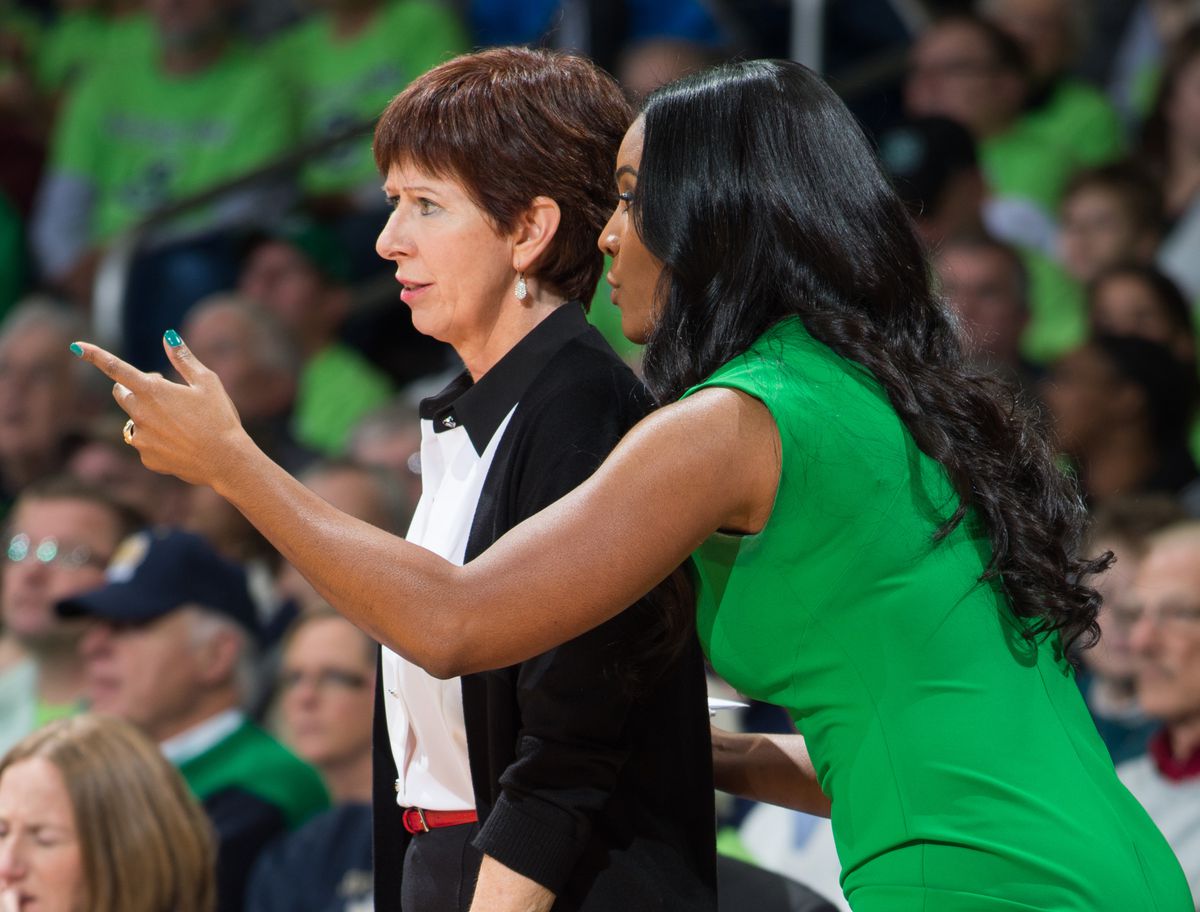It’s no secret that Muffet McGraw’s Notre Dame Fighting Irish struggled against the Tennessee Lady Vols—but then again, who didn’t? That’s what McGraw explained via phone this week after she agreed to look back on Summitt’s career as a coach.
Tennessee was completely dominant, McGraw explained, and that’s why it took 20 losses before Notre Dame pulled off a win at the 2011 Elite Eight. Summit, who had announced her diagnosis of early-onset Alzheimer’s that August, would retire the next year.
There’s a lot to look back on when thinking about Pat Summitt and the legacy she left behind at Tennessee, but something McGraw shared was that Summitt was always concerned about what would make every coach and every team in the collegiate system better, not just her own.
One day, McGraw took a chance and called Summitt after a particularly brutal loss. She asked if Summitt would share her scouting report; McGraw wanted to understand where she could be better as a coach, and how to help her team improve. The pair spoke for 45 minutes, something that didn’t surprise McGraw at all, who explained, “She was like a rising tide that lifts all boats. The better you are, the better we’re all going to be. I don’t know that a lot of people would… I think people are reluctant to ask [for that kind of help].”
There was also a Final Four the pair both attended one year when Summitt’s team wasn’t in the game. They were seated with a group of coaches when one thing led to another and someone asked for Summitt’s opinion on a topic. Soon, Summitt had “a little mini clinic going on in the lobby of the hotel,” McGraw recalled. “She was always willing to help anybody else.”
Coaches in 2025 are up against a system that their forebears could not have envisioned. Gone are the days, like McGraw’s first 13 years of her career, during which she never signed a contract and just renewed with Notre Dame ahead of each season. Now schools are pouring money into their women’s basketball programs—and they expect results.
This puts a kind of pressure on coaches that Summitt and McGraw didn’t experience. She added, “It’s a different time. You’re not going to see people coaching at a school for 30 years anymore. There’s an older group that are finishing up, but that’s about it”
At the heart of Summitt’s career as a coach was the drive to always make the game better, McGraw emphasized, and it’s something she sees in successful coaches who have come after her. McGraw cited both Tennessee’s Kim Caldwell and Notre Dame’s Niele Ivey (who played for McGraw, served as her assistant and then took over as head coach upon her retirement) as two women who are delicately weaving together traditions and legacies left by the coaches who came before them, while also paving their own ways.

According to McGraw, Summitt constantly queried, “Let’s make our game better, let’s get on TV more, let’s get more people in the stands. How can I help everyone else?”
“And so whenever anything came up, if there was going to be a new rule or anything like that, people would ask, ‘What would Pat say?’”
Though Summitt is no longer here, her legacy and adherence to what felt appropriate and right to do undeniably lives on—and that is only a good thing for women’s basketball at all levels, and especially for college players who are faced with more options than they might know what to do with. With a mentality that supports growth in everyone over just one, the sport can continue to thrive and grow for a long time to come.


